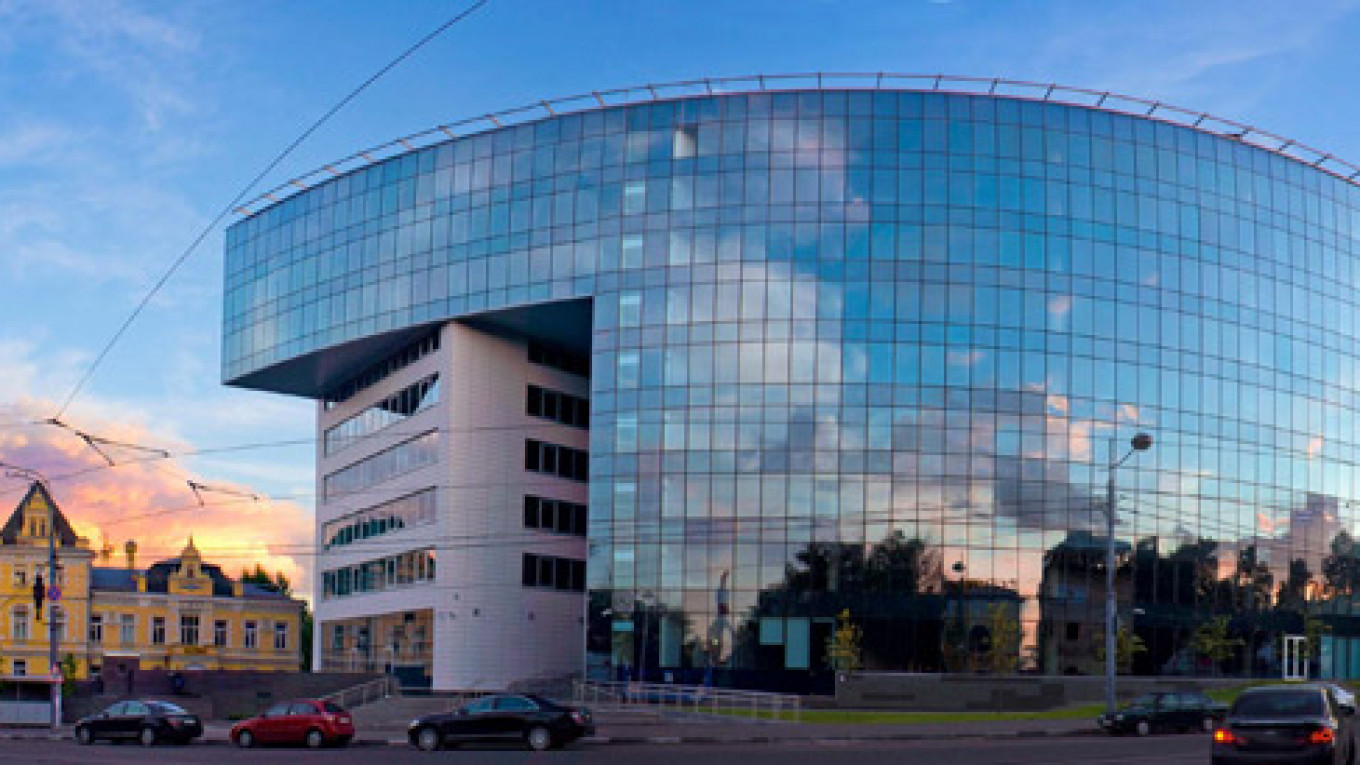While warehouse and office real estate markets in Russia are close to saturation, analysts see promise in the hotel and housing sectors, as the falling ruble currency turns residential property into an increasingly attractive devaluation-proof asset class.
Western sanctions and falling oil prices have seen the ruble plunge nearly 40 percent against the U.S. dollar this year, while inflation has accelerated to nearly 9 percent, threatening Russians' savings.
Amid uncertainty over the ruble's fate, people have decided to invest even more in “hard currency,” which in Russia — considering that dollars and euros are already prohibitively expensive — is real estate, Alexander Khrustalev, chairman of real estate company NDV Group, said at a Moscow Times real estate conference held last week.
Although the Russian economy has clearly stalled and faces the prospect of recession next year, there are no signs that investment activity in the housing sector across Russia is declining, said Alexander Krapin, head of real estate analytical agency RWAY.
According to Krapin's agency, 85-87 million square meters of residential space will be built this year, an all-time record high for Russia. The number of co-investment contracts concluded for new apartments meanwhile increased by 42 percent over the first nine months of this year, reaching 560,000, Krapin said.
He expected Crimea, which Russia annexed from Ukraine in March, to become the most promising region for real estate development in the next three to five years.
Local Hotels
Another real estate segment on the rise is the hotel business, analysts said.
“Because less than 10 percent of Russia's inner tourism potential is being exploited, the hotel business in the next three to five years will be the most attractive segment for investment,” Khrustalev said, adding that demand lies in the medium-sized three- to four-star hotels in regions neighboring Moscow and other large cities.
The ruble's woes are again a factor — as the currency weakens, outbound flights and overseas expenses are rising, making it more attractive to holiday in Russia.
Mid-range hotels will be the biggest beneficiaries, while “there is saturation and falling profits in the luxury hotel segment,” according to Mikhail Kolesnik, senior director of Marriott International responsible for development in Russia and the former Soviet countries.
No Need for Big Offices
While the residential and hotel real estate markets rise, the supply of office and warehouse space exceeds demand, pushing rental rates down, analysts said.
According to the National Rental Housing Agency, there is now one square meter of office space for every person living in Moscow, the biggest office market in Russia. This is a crucial indicator, the agency said, signifying that supply has met demand and new properties will have to compete with existing ones, weighing down rental rates.
Rental rates for offices are already on the decline. For Class A office space, rates have on average this year fallen from $800 to $710 per square meter per year and for Class B offices slumped from over $490 to $430, according to Knight Frank, a real estate consultancy. The company expects prices to decline further in the next two years.
Warehouses for Everyone
The same fate awaits warehousing, analysts said. Real estate consultancy CBRE earlier reported that the fourth quarter of this year would see an all-time record high for delivery of new warehouse space onto the market, depressing rental rates.
Only the best located facilities will weather this rush of supply: “While projects with better locations can keep rental rates intact with minimal price corrections, others are falling,” Anton Alyabyev, director of warehouse and industrial department at CBRE, said in a statement accompanying the third quarter warehouse figures.
Rental rates in prime locations have already decreased from $135 per square meter per year in the first half of this year to $125-130 in the third quarter. And with the warehouse vacancy rate expected to reach 10 percent by the year's end, Alyabyev said rates may have yet to fall.
Contact the author at a.panin@imedia.ru
A Message from The Moscow Times:
Dear readers,
We are facing unprecedented challenges. Russia's Prosecutor General's Office has designated The Moscow Times as an "undesirable" organization, criminalizing our work and putting our staff at risk of prosecution. This follows our earlier unjust labeling as a "foreign agent."
These actions are direct attempts to silence independent journalism in Russia. The authorities claim our work "discredits the decisions of the Russian leadership." We see things differently: we strive to provide accurate, unbiased reporting on Russia.
We, the journalists of The Moscow Times, refuse to be silenced. But to continue our work, we need your help.
Your support, no matter how small, makes a world of difference. If you can, please support us monthly starting from just $2. It's quick to set up, and every contribution makes a significant impact.
By supporting The Moscow Times, you're defending open, independent journalism in the face of repression. Thank you for standing with us.
Remind me later.






